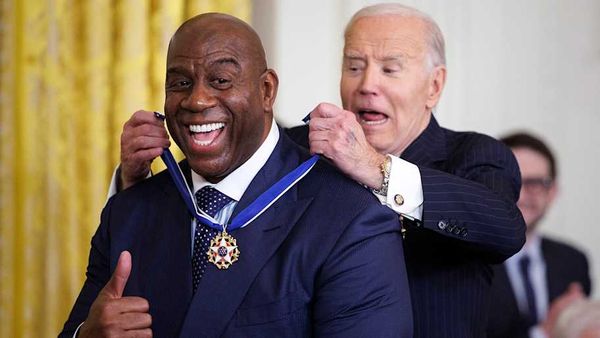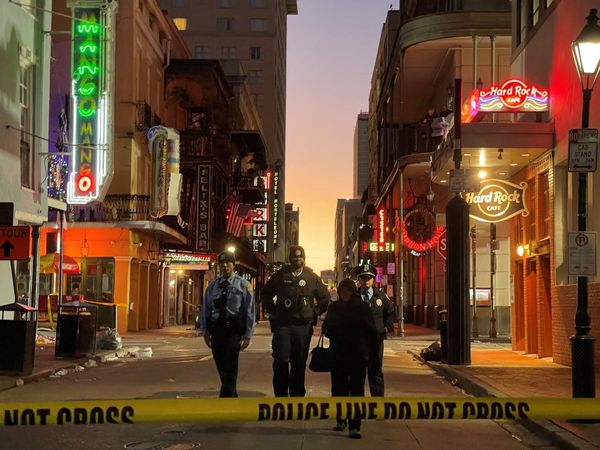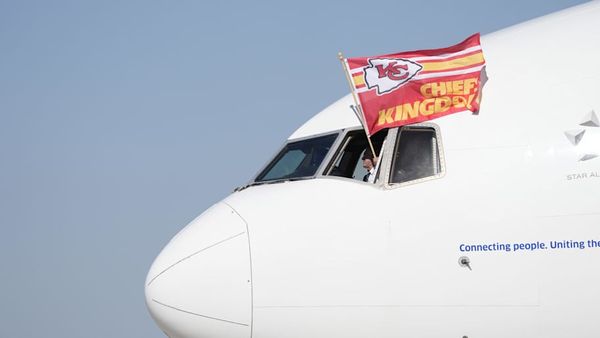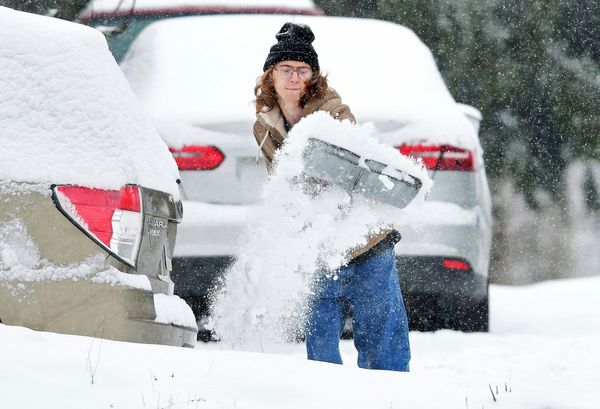
Paris (AFP) - France faced major disruptions on Tuesday after unions called a nationwide transport strike, as they remain in deadlock with the government over walkouts at oil depots that have sparked fuel shortages.
The effects were already visible at Paris hub Gare de Lyon early Tuesday, with packed suburban trains disgorging floods of passengers onto the platforms every 15 or even 20 minutes.
"I've got a two or three hour trip today, rather than an hour and a half normally," said commuter Yera Diallo, adding that "I have no idea how it's going to go this evening."
The broader strike comes after workers at several oil refineries and depots operated by energy giant TotalEnergies voted to extend walkouts.
Their industrial action has seriously disrupted fuel distribution across the country but particularly in northern and central France and the Paris region.
Motorists have scrambled to fill tanks as the fuel strike, which has lasted for nearly three weeks, cripples supplies at around 30 percent of France's service stations and has had a knock-on effect across all sectors of the economy.
President Emmanuel Macron's government used requisitioning powers to force some strikers back to open fuel depots, a move that infuriated unions but has so far been upheld in the courts.
"We will continue to do the utmost," Macron said after a meeting Monday with ministers, adding he wanted the crisis "to be resolved as quickly as possible".
'Time for negotiation over'
Finance Minister Bruno Le Maire earlier said it was necessary to use requisitioning powers to reopen the refineries and depots.
"The time for negotiation is over," Le Maire told the BFMTV broadcaster.
"There was a negotiation, there was an agreement," he added, referring to the agreement concluded last week between TotalEnergies and two majority unions, but which the hard-left CGT union rejects.
CGT boss Philippe Martinez suggested Monday that the government "get around a table" with the unions to discuss an increase in France's minimum wage.
"Requisitioning is unacceptable and it's never the right solution," added Frederic Souillot, general secretary of the FO union which is also taking part in the day of strike action, the unions' biggest challenge to Macron since he won a new presidential term in May.
Trains cancelled
The leftist CGT and FO called for a nationwide strike Tuesday for higher salaries, and against government requisitions of oil installations, threatening to cripple public transport in particular.
Unions in other industries and the public sector have also announced action to protest against the twin impact of soaring energy prices and overall inflation on the cost of living.
Rail operator SNCF will see "severe disruptions" with half of train services cancelled, Transport Minister Clement Beaune said.
CGT boss Martinez told RTL radio that "it will be the workers who decide" whether the strike at SCNF continues into the busy late October school holiday period.
Suburban services in the Paris region as well as bus services will also be impacted, operator RATP said, but the inner-Paris metro system should be mostly unaffected.
Beyond transport workers, unions hope to bring out staff in sectors such as the food industry and healthcare.
Their action will kick off what is likely to be a tense autumn and winter as Macron also seeks to implement his flagship domestic policy of raising the French retirement age.
But the economic squeeze partly caused by Russia's invasion of Ukraine, along with the failure of Macron's party to secure an overall majority in June legislative polls, only adds to the magnitude of the task.
In Paris Tuesday, separate marches by striking workers and vocational school teachers are expected by police to gather more than 15,000 people in total.
A weekend march against the high cost of living called by opposition party France Unbowed (LFI) saw around 30,000 people hit the streets by a police count, while organisers claimed 140,000.







